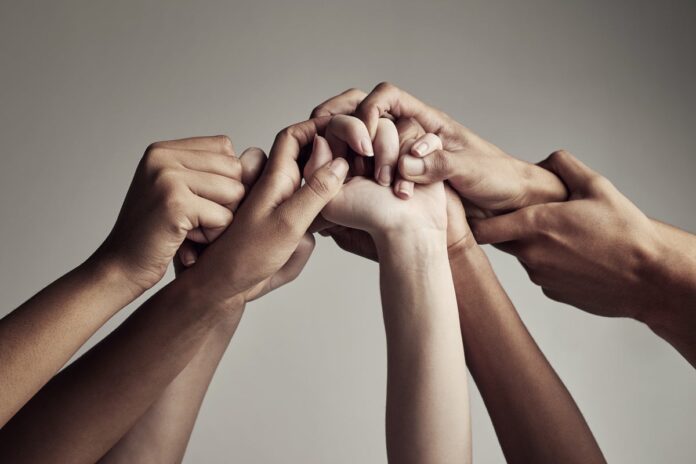A new study by dating app Feeld has found a significant rise in the practice of “relationship anarchy”, with one in five people doing it without even realising.
Relationship anarchy, or RA, was coined in 2012 by Andie Nordgren to describe the application of anti-patriarchal and anti-capitalist ideas to relationships, which researchers argue is the ultimate cure to the “loneliness epidemic”.
Relationship anarchists describe the main pillars of RA as communication, self-awareness, empathy and mutual aid. The aim is to cultivate communities of evolving partnerships, both platonic and otherwise, rather than focusing solely on a single, static romantic relationship.
The State of Dating report highlighted that those engaging in relationship anarchy have broader social networks, engage in deeper emotional connections, and feel freer in themselves than those who do not. It comes just one month after Rayden Solicitors reported that 27 per cent of Londoners don’t see monogamy as “realistic: in modern relationships anymore.
The study is a collaboration between sex educator Ruby Rare and Feeld, a sex-positive alternative dating app “for the curious”. Users select labels like “dominant”, “submissive”, “queer” and “non-monogamous” to help signify who they are and what exactly they’re looking for. Things get very specific, very fast.
Unlike mainstream competitors like Hinge and Bumble, Feeld doesn’t use an algorithm to pair users based on predicted compatibility, levelling the playing field for anyone to match with anyone. As a result, the app’s popularity has boomed, reporting an average of 50 per cent growth each year.
You’re not alone if you’re feeling a little lost – Gen Z and younger millennials are 1.5 times more likely to recognise the term than baby boomers. But on the whole, it remains a niche concept. “It’s a relationship style that is founded on politically anarchic principles. It takes being intentional,” Ruby, the report’s author, says. “You have to examine the relationships you currently have in your life, and reflect and deep dive. Are you just going through the motions?”
A metaphor that comes up often in RA manifestos is the “relationship escalator”. It describes the “default path”, which modern relationships are expected to follow: date, move in, get married, have children. Ruby quips: “Once you’re on it, it’s quite difficult to get off.”
Relationship anarchists argue that instead of following these cookie-cutter steps, focus should be on a pair’s interpersonal needs and desires, and fostering a dialogue as those things change – less pressure on romantic love, more appreciation for “late-night chats with a best friend, chosen family, creative collaborations, and community care’.
The lifestyle has its perks; the report found that relationship anarchists are less lonely, feel more connected and are more likely to have strong support systems around them.
However, more freedom does not necessarily mean less struggle. The study found that people doing RA have a harder time handling conflicts in relationships. When it comes to discussing relationship boundaries, the pressure felt by Feeld users who do RA is a whopping 536 per cent higher than those who do not.
Ruby recognises this as stark but realistic. If you’re asking more complicated questions about the structure of your relationships, more complicated answers will come up. “It’s challenging to figure out what your boundaries are. But I don’t think relationship building should be about shying away from challenge.”
So how does relationship anarchy look in practice? The flashy, obvious outcome of RA is people in non-monogamous relationships, but practitioners argue that it can exist in every facet of life. TikTok is flooded with videos of straight women talking about “decentering [romantic relationships with] men” so that they have more time for personal growth. Young people are significantly more likely than Millennials to “settle down” and buy a house with a friend instead of waiting to meet a spouse. Culturally, we can see a growing hunger for community and mutual aid. Perhaps there are even echoes of RA in the growing number of married couples who are “sleep divorced”.
And where might a burgeoning relationship anarchist start? “The foundation for all love in Greek philosophy is agape, the love of friendship,” Ruby explains. “Go back to that. Approach all your relationships through the mindset of friendship rather than what it’s ‘meant’ to be like. Examine them, and what the balance is, and what you get from them.
“It’s important to find community, online or offline, where you get to talk about these things. You can’t practice relationship anarchy on your own. “And stop worrying about performing relationships perfectly or trying to prove something. Human connection is inherently messy. The better we are at embracing that, the better we are at enjoying our lives.”
